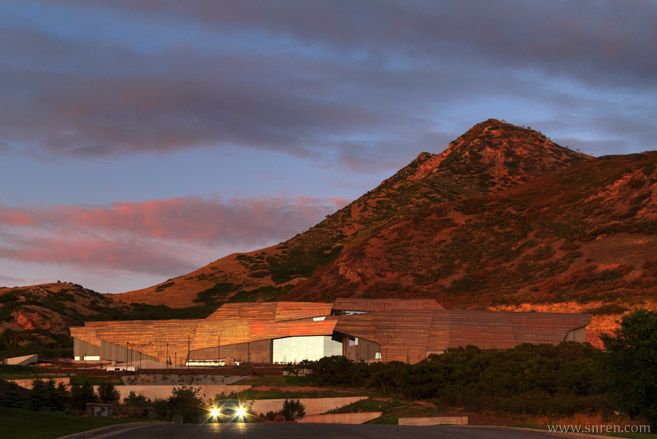
New York-based Ennead Architects' new Natural History Museum of Utah, on the rugged edge of Salt Lake City. The $103 million, 163,000 sq ft Rio Tinto Center, as the building is called, is located in the foothills of the Rocky Mountains' Wasatch Range
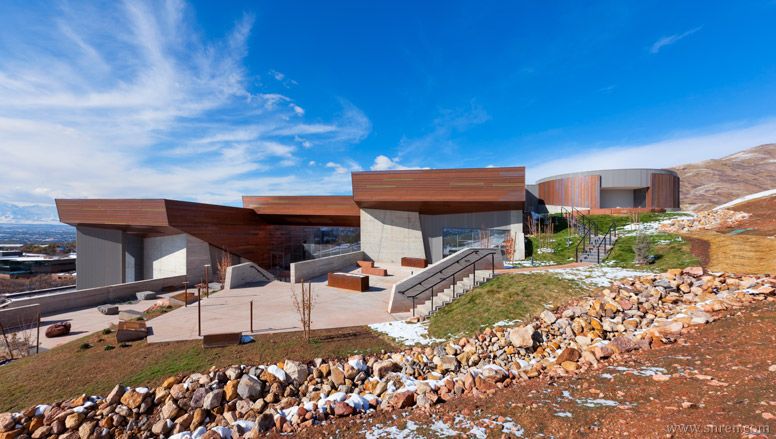
The structure, perched above what had been the shoreline of the prehistoric Lake Bonneville, steps down the site, its ledges riding the slope discreetly while also exerting a commanding tectonic presence
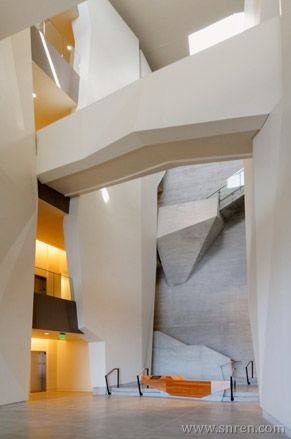
With an aesthetic language of rugged elegance, the museum provides research and exhibition space, as well as - crucially - locating visitors within the natural world, and facilitating observation of it
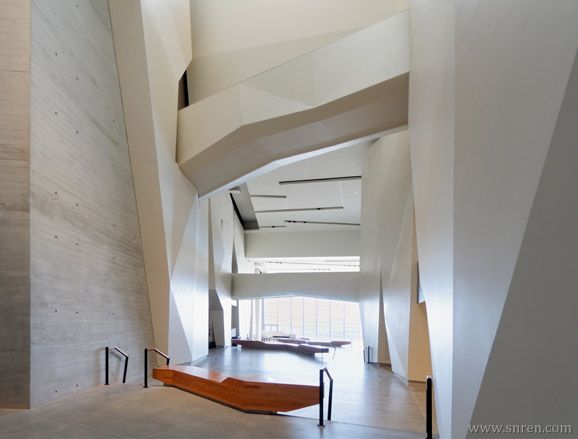
Inside the building, the design centres around a spatial coup de theatre called 'the Canyon', a 60-ft-high atrium space, flooded with sunlight and bridged by circulation walkways
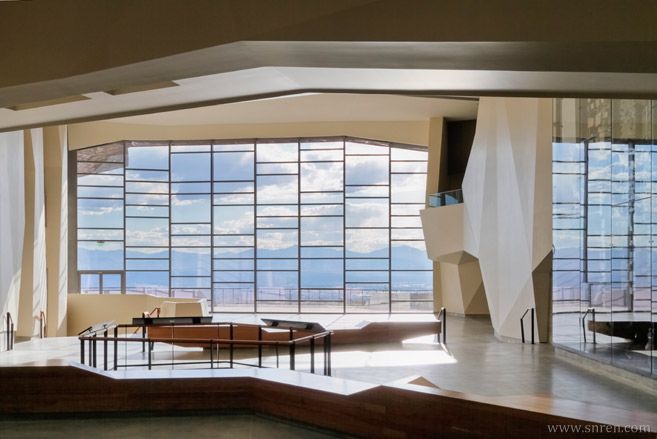
The poured-in-place concrete and polished plaster forms are evocative of the enveloping - and not a little intimidating - grandeur of the natural enclosures found throughout Utah's Great Basin
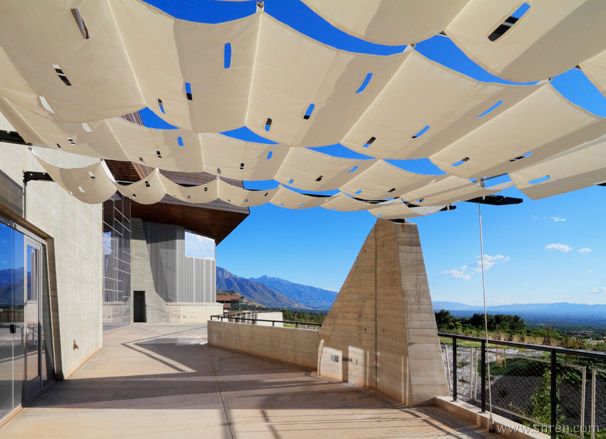
In addition to separating the museum's 'empirical' north wing (devoted to research and conservation, administration, and storage of over 1.2 million objects and specimens) and 'interpretive' south side (filled with galleries and exhibition spaces), the Canyon serves, says Schliemann, as a social space
The museum building essentially restates the stark beauty of the region's topography - 'which is like no other in the world,' says project architect Todd Schliemann
|  |手机版|Archiver|室内人
( 辽ICP备05022379号 )
|手机版|Archiver|室内人
( 辽ICP备05022379号 )


 关于室内人 | QQ:3459039404(客服) | Email:snren_com@163.com
关于室内人 | QQ:3459039404(客服) | Email:snren_com@163.com